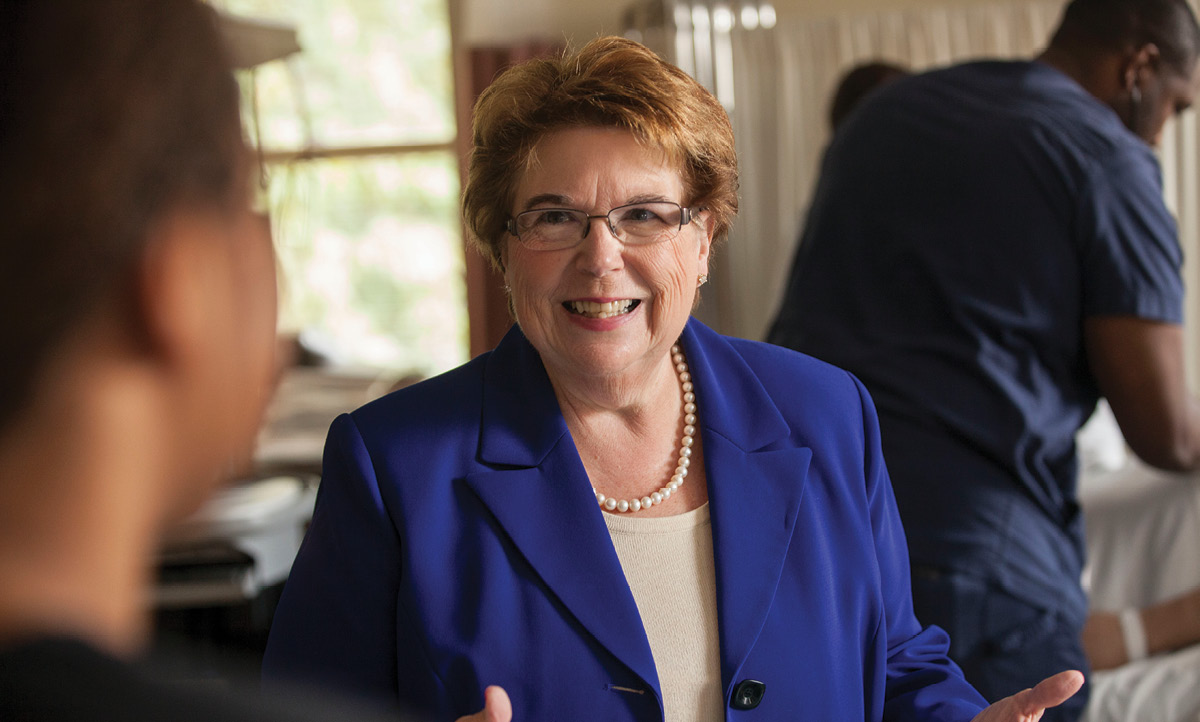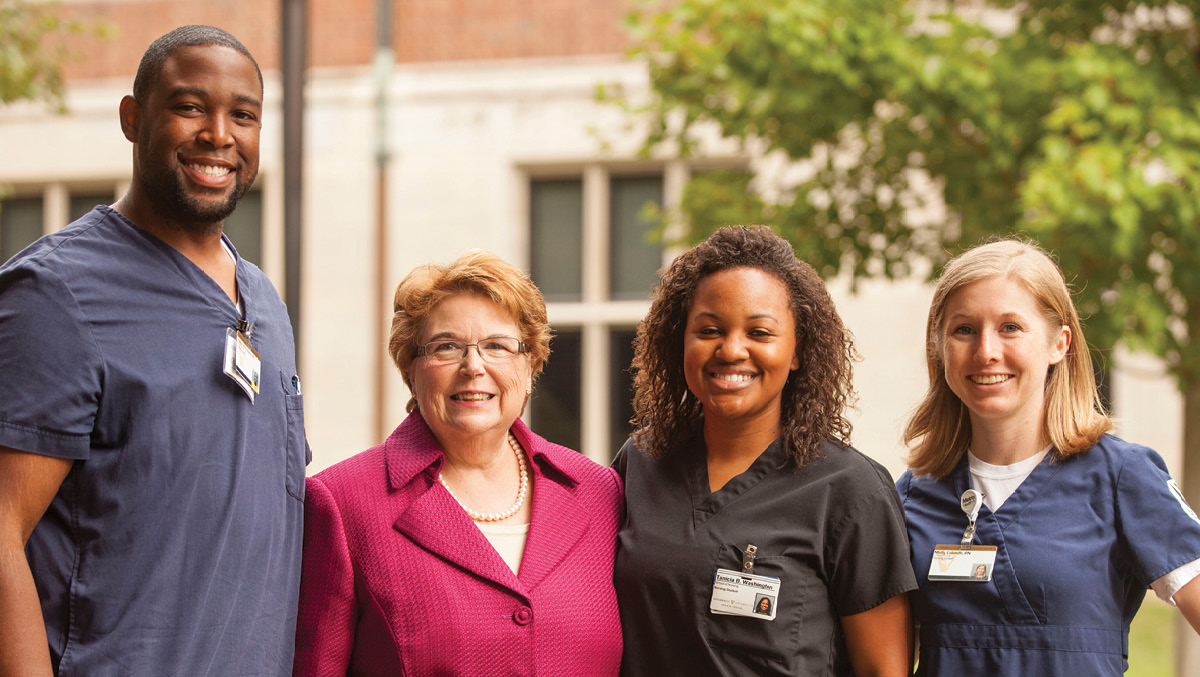By Linda Norman, dean of the School of Nursing

The United States recently passed the grim milestone of 550,000 people who have died as the result of COVID-19—a tragedy hardly imaginable just a year ago. Amid the incomprehensible suffering that families and patients have gone through, health care workers at Vanderbilt and medical centers across the country have truly done the work of heroes to fight this pernicious disease.
Thankfully, the development of highly effective vaccines and a greater adherence to the health and safety guidelines effective against transmission of the virus are starting to restore a sense of hope and normalcy.
Yet, even after COVID-19 fades, it will have transformed health care and the way we deliver services for many years ahead. Most immediately, I think we’re going to continue wearing masks, shields and goggles in clinical areas, given how much these simple measures have done to curtail the transmission of colds and flu. I also think we’ll pay closer attention to the types of infectious diseases that people have, particularly respiratory-based infections.
Where I think we will see the most lasting change is in the field of nursing. Throughout the COVID-19 crisis, nurses have been the ones to stay with a patient throughout their care, whether they’re in the ICU or whether they’re in a regular hospital unit. The result is that the value of nursing, and its contribution to patient care, has gone up exponentially. Initially I worried that the portrayal of nurses as heroes put too much emphasis on their exhaustion and that it would deter people from wanting to join the profession. But, in reality, it’s had the opposite effect. Applications for programs at the Vanderbilt School of Nursing, and at our peers across the country, have increased significantly. People see how intimately involved nurses are in making decisions about care and that they don’t simply operate on what physicians say. This has helped dispel some persistent myths and garnered new interest in nursing care, something I think will continue for the foreseeable future.

Similarly, I think COVID-19 has opened up promising new areas for nursing researchers, whether that means taking part in bench science or focusing on care and patient outcomes as it relates not just to physiology, but also psychology. Nurses who have been in COVID-19 units have a really good viewpoint about effective treatments, as well as the lived experience of people who had the disease. And truthfully, COVID-19 is going to broaden our understanding about palliative and end-of-life care. What are the interventions that are most important, and how can you really help a person when their family can’t be there at the end? This may translate to similar situations facing other chronically ill patients.
Another research aspect COVID-19 has opened is looking at the impact of states that loosened oversight rules to allow nurse practitioners more leeway in patient care. We’ll be able to learn a lot about how well that worked and move the conversation to one based on evidence rather than opinion. This question will become ever more pressing as the nursing shortage across the U.S. becomes more severe. We’ll want health care delivery teams to be able to utilize nurses to the top of their licenses since we will no longer have enough personnel to provide the traditional one-on-one patient care we have been giving.
COVID-19 also did a great deal to hasten the adoption of telehealth, an area that presents vast new opportunities for nurses. For example, when it comes to managing chronic disease, can nurses stay in a central location while a community worker is in the home with patients? Telehealth will also help pave the way for a new generation of digital health monitoring devices. Nurses should be heavily engaged in the design of those to offer insights about what data to collect and how we analyze that information. I am very much looking forward to that development, in particular.
As I retire from my position as dean of Vanderbilt’s School of Nursing in July, with plans to return to the faculty, I am eager to use the painful lessons of the past year to help train a new generation of nurses who will reshape the health care profession for the better.
Linda Norman, the Valere Potter Menefee Professor of Nursing and dean of the Vanderbilt School of Nursing, is a nationally and internationally recognized leader in nursing and health profession education. This essay was adapted from a video interview conducted in February 2021.